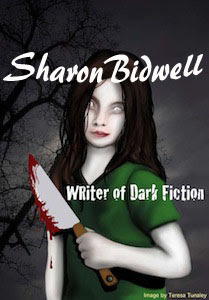The Old Man, Thomas Perry
This is a thriller with believable, interesting characters, though I found the pacing uneven. Even in a thriller, not all the chapters should be at speed, but I found the flow here a little off pace; I’d get used to one momentum before being thrust into another and back again. Still, I found the story absorbing. Anyone who expects to find the television series in these pages may be put off. Maybe that’s why I found this a little jarring. Much more happens in the series than here, and the ending wraps up a little abruptly. It’s hard for me to choose which version I preferred.
Agatha Raisin and the Murderous Marriage (audio), M.C.Beaton, read by Penelope Keith
In this one, things go awry when Agatha ignores the possibility that her estranged husband could still be alive. I found this instalment entertaining, possibly because the more Agatha tries to solve one murder another ensues and she finds herself at the heart of the investigation.
Everfound (Book 3 of the Skinjacker Trilogy), Neal Shusterman
Perhaps the best of the three, which means the author did his job well, increasing the tension as the overall story progressed, making this a trilogy worth finishing. He’ll (eagerly?) throw characters into the worst scenarios, perhaps situations that mean the end of them, often just when you love them the most. This shouldn’t put anyone off, though, as it adds tension and drama. I also liked that the author showed that even unpleasant characters have layers and motivation for what they do, something sometimes not highly dealt with in books for younger audiences. I grieved for those I earlier thought deserved their bad ends, which takes some doing no matter the age of the reader. As for the age of that audience, I find it difficult to judge, being as I read books like Oliver Twist when I was 7 or 8 years old. A satisfying series.
House of Leaves, Mark Z.Danielewski
This is a tough book to review without breaking it into parts. Johnny Truant tells us his story of reading the Navidson report as written by an old man called Zampano. I found Truant’s sections irritating, constantly going off on tangents and telling a story seemingly unrelated to the notebook he’s reading, especially his gratuitous sexual encounters; although at one point I wondered if these were as imaginary as some of his hallucinations of personal peril. However, Navidson’s story as ‘written’ by the character of Zampano grabbed my attention but alas, made me want to read those sections without the interference of the rest.
Then there are the annotations, again many of which seem to tell the reader nothing. At best, they lend a kind of authenticity to Zampano’s note taking, but are almost entirely unnecessary. The experimental style of the book is mildly interesting, but all this extraneous information is taxing and makes the book drag. Early in the ‘report’, Zampano includes almost two pages of names, which turn out to be (according to a footnote) names of photographers. I didn’t bother reading through an entire list of names, which were there for no apparent reason I could see. The references to echoes and labyrinths seem somehow to refer to the novel itself. As does the sentence ‘All solutions are necessarily personal’ (page 115) appearing to suggest the outcome of the story (good or bad) will be unique to the individual.
In another, the author notes a real or fictional article (I don’t know which) remarking ‘In the future, readers of newspapers and magazines will probably view news pictures more as illustrations than as reportage…’ referring to the inability eventually to distinguish between genuine images and those manipulated. But in this, and references to other technology, once again the writer seems to manipulate the reader, telling us we can trust nothing.
And what is the point of the boxes of text or blank pages, other than to suggest the maze of corridors and wide open spaces within the supernatural realms of the ‘house’ investigated in the Navidson report? Likewise later, lines the reader needs to read in the opposite direction, or from a corner, etc., appear to be representations of Navidson’s exploration.
Whilst reading I couldn’t help thinking that so many reviewers told others not to bother, and yet, the book remains acclaimed. On the one hand, the author has written something incredible when one considers the work of putting all the content together — that of Zampano’s notebook and Truant’s experiences while reading said book — with all the annotations. It must have been a pain to organise, and to print, especially when first published. But has the author, in actuality, written something ultimately pretentious with little substance, leaving readers floundering around trying to find personal meaning in a literary labyrinth? In that regard, the book almost reads like a joke played on everyone who gets lost in its pages.
Or does the book attempt to work like the maze Navidson explores? Psychological references try to explain the true meaning of Navidson’s claims, treating these details as the maze of Navidson’s mind. I enjoyed reading the Navidson house storyline, and there was a touch of creepiness in the odd place, but anyone looking for a horror story may be hard-pressed to find it here. Truant’s descent into madness seems insubstantial, although the conclusion of the book, when we learn more about his mother from her own written word, left me questioning if he was always so inclined to a breakdown. Ultimately, I understand the love/loathe reactions. This book will mean different things to different people — lots to some, nothing to others. This has to be one of the most peculiar books I’ve read.
